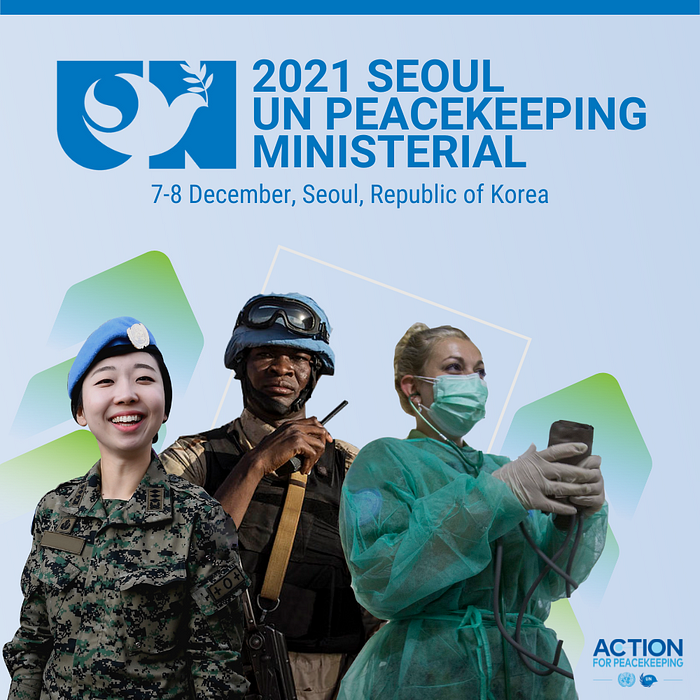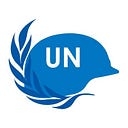At Seoul, strengthening the UN peacekeeping partnership
By: Jean-Pierre Lacroix and Cho Hyun
United Nations (UN) peacekeepers make a tangible difference in the lives of millions of people every day. At a time when we are witnessing a trend of deteriorating security and political situations, more than 87,000 peacekeepers from over 120 countries are helping save lives, preventing conflict, and creating conditions for lasting peace. And they are doing so while increasingly coming under attack.

These peacekeepers are part of a collective investment in global peace and security, which starts with the commitment of all partners that make up UN peacekeeping. This includes Member States, the Security Council, General Assembly, host countries, and regional and international organizations — all of whom have the unique ability to shape our response in some of the world’s most complex settings.
If UN peacekeeping is the international community’s most effective tool to help countries transition to peace, what do our operations need to successfully face emerging and growing threats? What is required from this partnership to ensure that we meet the expectations of those we serve and can deliver on what we have set out to accomplish?
The answers to these significant questions lie at the heart of the 2021 Seoul UN Peacekeeping Ministerial on December 7 and December 8 that will bring together more than 100 countries. The Ministerial will now be organized virtually by the Republic of Korea due to concerns surrounding the pandemic. From New York to London to Vancouver, this is the latest in a series of high-level events dating back to 2014 that has witnessed world leaders pledge substantial resources to strengthen and reinvigorate UN peacekeeping.

For example, as a result of this guiding process, the UN was able to create a stand-by force of 3,000 troops and police to deploy within 60 days, equipping us with the capability to send military resources to places such as the Central African Republic this year to respond to growing violence and shifts in the security situation. Generous contributions are helping ensure critical advances in the Women, Peace, and Security Agenda, including the ability to deploy more women personnel with a view towards making peacekeeping more effective.
The objective of this year’s Ministerial is to garner political support and generate concrete pledges to strengthen UN peacekeeping, particularly through Action for Peacekeeping+ (A4P+). We have made progress strengthening the effectiveness of our work since 2018 as part of the Secretary-General’s Action for Peacekeeping (A4P) agenda. A4P+, which we launched earlier this year, will catalyze progress in further enhancing the effectiveness of UN peacekeeping over the next two years.

UN peacekeeping requires new, more mobile capabilities that enhance protection of, both, peacekeepers and civilians, experienced troops, and police to help accomplish our mandates, better medical capacities and a digital transformation to increase situational awareness and confront new threats such as mis- and disinformation. These areas are well highlighted in the Seoul Initiative, which the Republic of Korea will announce as a key deliverable of the Ministerial.
At the same time, however, we must collectively do more, in partnership with Member States, to end sexual exploitation and abuse by UN personnel. In addition to being intolerable and their impact on communities, these acts by a very small minority of our peacekeepers tarnish the reputation and accomplishments of their colleagues who serve with dignity and honour. We must all play our part, including through training, accountability, and support to victims.
Member States are also being encouraged to increase the number of women peacekeepers serving and enhance their role, while simultaneously supporting women’s participation in peace processes.
As the host of the 2021 Seoul Ministerial and a strong supporter of UN peacekeeping, the Republic of Korea will announce its generous donation of more than a dozen helicopters to deploy to our missions. Other capabilities that the UN is expecting Member States to provide include rapidly deployable units, as well as training and capacity-building enhancements, with the goal of improving the overall responsiveness of military and police units.
This year’s pledging conference comes at a time when the world is still reeling from the ongoing Covid-19 pandemic. Since the beginning of the pandemic, we have witnessed remarkable ways that peacekeepers have adapted quickly to unprecedented challenges and continued to implement core mandate activities.
From Lebanon to South Sudan to the Democratic Republic of the Congo, our peacekeepers have saved lives by supporting national and local COVID-19 response efforts, including through donations of medical equipment, renovating hospitals, fighting misinformation, and informing populations of health risks — all while keeping themselves and others safe.

Achieving sustainable peace requires that we continue to place political solutions at the heart of our collective efforts and partnership strategies. All of our peacekeeping missions exist to support political solutions, and elevated support for such political efforts is greatly needed from Member States. The Ministerial is a timely opportunity for leaders to reaffirm their support and maximize our chances of success — the results of which will be felt for generations to come. Indeed, we owe nothing less to our peacekeepers who risk their lives each and every day, as well as the millions who count on us to succeed.
Jean-Pierre Lacroix is Under-Secretary-General for Peace Operations. Ambassador Cho Hyun is Permanent Representative of the Republic of Korea to the United Nations.








